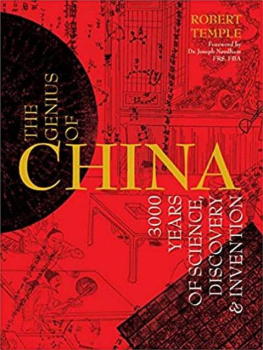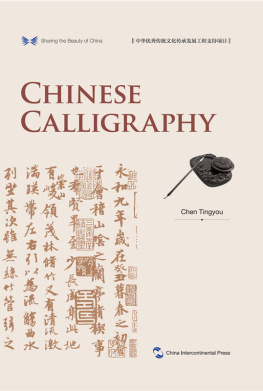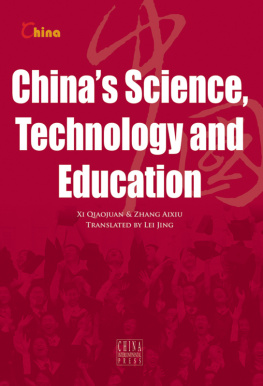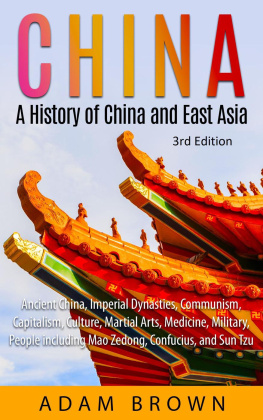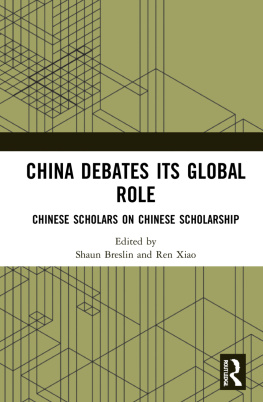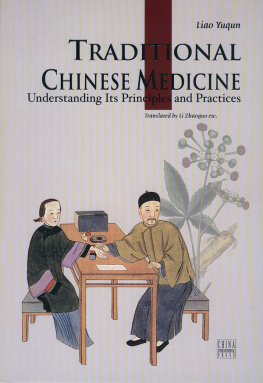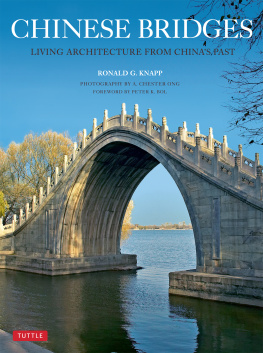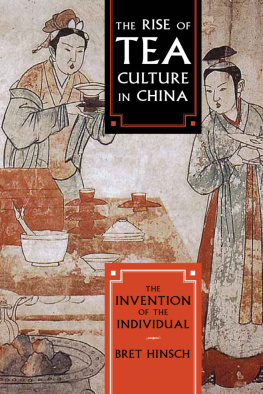The Genius of China
3,000 Years of Science, Discovery, and Invention
Robert Temple
Carlton Publishing Group
First published in Great Britain in 1986.
Third edition, 2006.
Contents
To Dr Song Jiang, with deep gratitude for his friendship. His qualities of character, intellectual brillance, and practical grasp of public affairs, have made him one of the most loved and admired of all the leaders of China.
Preface
Dr Joseph Needham, Fellow of the Royal Society in Britain, a famous biochemist and historian of science and an old friend of the Chinese people, devoted his later life to the study of the history of Chinese science and technology and to encouraging friendship between the British and Chinese people. From the middle of the last century, Dr Needham gave his full strength to doing a conscientious job of classifying and researching the rich ancient Chinese traditions of science and technology, and he achieved great success. Science and Civilization in China, which is about 20 million words in length, is an unprecedented contribution to the world history of science and technology. With the correct views and thoughtful insights of a Western scholar, he came to a systematic and comprehensive conclusion about the glorious achievements of ancient Chinese science and technology through this series of works. His works fully affirm the great contribution of ancient Chinese civilization to world civilization, and erect a bridge of mutual communication and understanding between the two major Eastern and Western systems. His work has exerted tremendous and profound influence in respect of enhancing the comprehensive understanding of China by other countries, facilitating the scientific and cultural exchange between East and West, and promoting research into Chinese science and technology.
Robert Temple is a British scholar who loves the Chinese people and has a deep interest in and admiration for traditional Chinese culture and scientific achievements. Through comparative study, he came to a surprising conclusion: Possibly more than half of the basic inventions and discoveries upon which the modern world rests come from China. Therefore, he came to the profound realization that civilization is an inseparable entirety and that the modern technological world is a joint creation of Eastern and Western civilisations, and that both East and West should acknowledge and respect Chinas contribution. In order to acquaint western readers with a general knowledge of ancient Chinese science and technology, he wrote his book The Genius of China (the Chinese edition is called The Spirit of Chinese Invention: 100 World Firsts). It selected a hundred World First cases either chronologically or according to scientific criteria from the rich and varied Chinese scientific traditions and made a concrete and concise introduction with pictures. Most of the materials are from Dr Needhams Science and Civilization in China, other works of Joseph Needham, and other unpublished typescripts and materials. Temples work was praised by Dr Needham, who therefore wrote a warm Foreword for it.
The Genius of China is a book with rich content, clear expression and excellence both in pictures and text. It is scientific, knowledgeable and interesting, which is highly suitable for young people. Our new century is an era of the knowledge-based economy. The intense competition between nations is, to be exact, a competition for national quality. Our core target of deepening educational reform and advancing quality education in an all-round way is speedily cultivating the highly qualified personnel who possess an innovative spirit and can demonstrate capability. General Secretary Jiang Zemin has stressed repeatedly that innovation is the spirit of a nation and the endless momentum for a nations prosperity. He has also said The Chinese nation should occupy its proper place in the field of world high technology. Our young people are expected to bear firmly in mind General Secretary Jiangs instructions, undertake the mission of the times, always regard the building of the states prosperity and the peoples happiness as their duty. They should be determined to have the lofty aspirations of loving their homeland and going all out from childhood to make their country strong, to be the New People (having ideals, morality, knowledge and discipline) and dedicate their wisdom and capability to their country, and to help to realize the great rejuvenation of the Chinese nation. Reading this book, young people could not only acquire a relatively clear understanding of the splendid history of science and technology of their motherland, but also draw stimulation in the course of studying and carrying on the long-standing and well-established innovative spirit and courage of the Chinese nation. Therefore The Genius of China, written by the friend of China, Robert Temple, is a good teaching material with a unique perspective to assist in quality education for young Chinese people.
Madame Chen Zhili
State Councillor of China for Education, Science, Technology and Culture

|
(1) The Chinese invention of the stirrup led to the development of the game of polo. This watercolour painting on silk by Li-Lin, made c. 1635, was probably based on a Yuan Dynasty (12801368) original. (Victoria and Albert Museum.) |
Foreword
I should like to give a warm welcome to this book by Robert Temple. It is, in its own way, a brilliant distillation of my Science and Civilisation in China, published by the Cambridge University Press, a work which will be complete in some twenty-five volumes and of which fifteen have now appeared or are passing through the press.
The extraordinary inventiveness, and insight into nature, of ancient and medieval China raises two fundamental questions. First, why should they have been so far in advance of other civilizations; and second, why arent they now centuries ahead of the rest of the world? We think it was a matter of the very different social and economic systems between China and the West, as I will explain more fully in a moment. Modern science arose only in Europe in the seventeenth century when the best method of discovery was itself discovered; but the discoveries and inventions made then and thereafter depended in so many cases on centuries of previous Chinese progress in science, technology and medicine.
Perhaps I should describe how I became involved in all this. Coming to Cambridge in 1918, intending to read medicine, I was trained primarily as a biochemist, and specialized in the connections of biochemistry with embryology, producing Chemical Embryology in 1931, and Biochemistry and Morphogenesis in 1942. But I was always interested in the history of science, and in a way Charles Singer did as much for me as Frederick Gowland Hopkins. My History of Embryology came out in 1934.
Three years later the laboratories in which I worked received several Chinese scientists, some intending to do research leading to the doctorate. We became great friends, and this had two effects upon me: first, I found that the better I got to know them the more exactly like my own their minds were, which raised in acute form the question of why modern science had begun only in Europe. Second, I learnt the Chinese language; and I did so as a labour of love, which is quite a different thing from going through the mill of the Oriental Studies Tripos. By the time that one of them, now long my chief collaborator, Lu Gwei-Djen, left in 1940, we had decided that something absolutely must be done about the history of science, technology and medicine in traditional Chinese culture.
Next page
